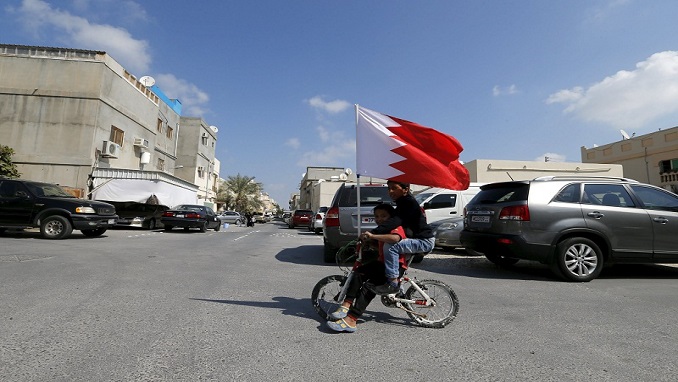Bahraini security forces have beaten minors and threatened them with rape and electric shocks after detaining them in protest-related cases last month, the anniversary of a 2011 pro-democracy uprising, rights groups said as quoted by Al Jazeera.
A government representative did not comment on the specifics of the accusations in response to a Reuters query, saying in a statement that Bahrain took the protection of human rights “extremely seriously” and had a “zero-tolerance policy” of mistreatment in the justice system.
In a joint statement on Wednesday, Human Rights Watch (HRW) and the London-based Bahrain Institute for Rights and Democracy (BIRD) said about 13 minors aged between 11 and 17 were held in early to mid-February as authorities tried to dissuade protesters from gathering to mark the 10th anniversary of the uprising.
The children aged between 11 and 17 were also deprived of their parents or lawyers being present during their interrogations. The report also claims that judges “unnecessarily” ordered their detention.
“Five children, arrested on February 14-15, said that police from the station beat, insulted, and threatened them with electric shocks from a car battery,” the two groups said, quoting the children and their families.
Police also accused children of vandalism, planting a fake bomb and throwing petrol bombs in November 2020, they added in the statement. Four children remain in detention and are being tried as adults, including a 16-year-old with a serious medical condition and who is due to face a court hearing tomorrow, New York-based HRW and BIRD said.
“An officer hit a 13-year-old on his head and threatened to rape him, give him electric shocks, and beat his genitals. A police officer who threatens a 13-year-old with rape or electric shocks from a car battery is an abominable stain on Bahrain’s reputation,” said Sayed Ahmed Al-Wadaei, advocacy director at BIRD:
“Bahraini police officers treated children as enemies who must be terrorized into confessing, while prosecutors and judges shut parents and lawyers out of proceedings.”
In a statement on Wednesday, Bahrain’s attorney general directed the public prosecution to adopt the aims of a law on corrective justice for children and their protection issued on February 18 and intended to take effect six months later.
The government representative added that when dealing with those younger than 18, the decisions of the criminal justice system in the Gulf Arab nation weigh “each individual child’s best interests, as well as their rehabilitation and place in society”.
Last month BIRD revealed that a Bahraini judge ordered the detention of two 13-year-olds for seven days following interrogation by the public prosecution in connection to the government’s crackdown as activists marked the 10th anniversary of the Bahraini Uprising on 14 February.
Both children faced up to 20 years in prison over arson charges in connection to protests in their home village of Abu Qua last year. In some cases, the rights groups said, Bahraini police arrested children accused of burning tyres or blocking a road on the day of their arrest. Police also accused children of planting a fake bomb and throwing Molotov cocktails.
However, BIRD stated that Bahrain’s police and judiciary are notorious for refusing to grant detainees access to legal representation and claim that the children may have been intimidated into providing coerced confessions.
“These abuses by Bahrain’s criminal justice system are the latest entry in a long record of harming children to send a repressive message,” said Bill Van Esveld, associate children’s rights director at HRW.
“The UK, US, and other governments should ensure that their security support to Bahrain is not being used to torture and humiliate kids.”
Bahrain’s United States-backed, Sunni Muslim monarchy used force to suppress the 2011 uprising, led mostly by members of the Shia Muslim majority, and cracked down hard on sporadic unrest and dissent later. It was the only Gulf state to experience one of the “Arab Spring” uprisings a decade ago.
Mass trials followed and thousands were imprisoned, with many others fleeing abroad. Subsequently, there have been clashes between protesters and security forces, which have been targeted by bomb attacks.
Rights groups including Amnesty International have criticised the kingdom’s lack of an independent judiciary and accused its security forces of committing torture and other forms of ill-treatment with impunity.
The government denies the charges.
